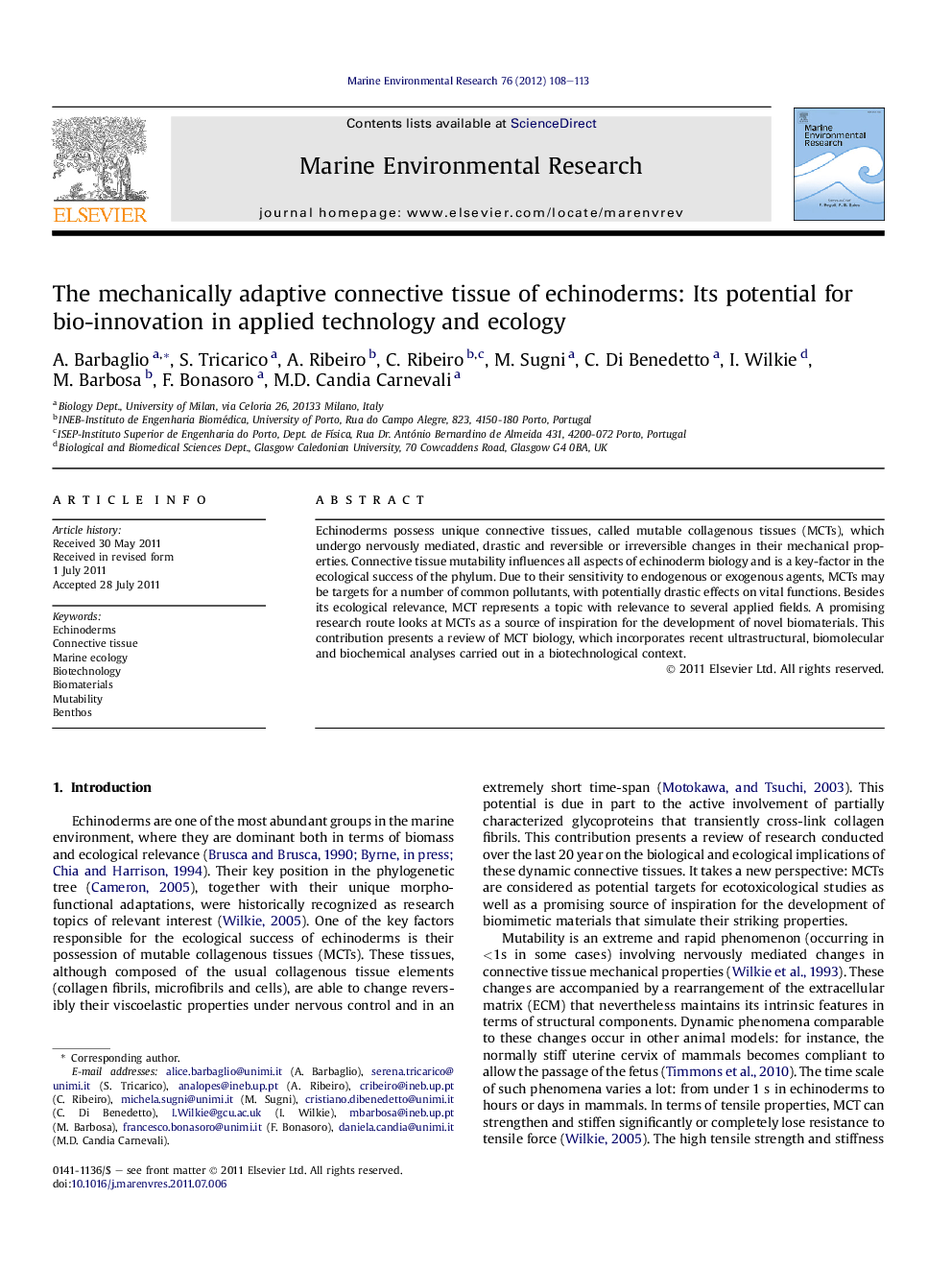| Article ID | Journal | Published Year | Pages | File Type |
|---|---|---|---|---|
| 4551017 | Marine Environmental Research | 2012 | 6 Pages |
Echinoderms possess unique connective tissues, called mutable collagenous tissues (MCTs), which undergo nervously mediated, drastic and reversible or irreversible changes in their mechanical properties. Connective tissue mutability influences all aspects of echinoderm biology and is a key-factor in the ecological success of the phylum. Due to their sensitivity to endogenous or exogenous agents, MCTs may be targets for a number of common pollutants, with potentially drastic effects on vital functions. Besides its ecological relevance, MCT represents a topic with relevance to several applied fields. A promising research route looks at MCTs as a source of inspiration for the development of novel biomaterials. This contribution presents a review of MCT biology, which incorporates recent ultrastructural, biomolecular and biochemical analyses carried out in a biotechnological context.
► Echinoderms posses Mutable Collagenous Tissues (MCTs). ► MCTs change their mechanical properties rapidly and reversibly. ► MCTs are vital for the ecological success of the phylum. ► MCTs could be target of common pollutants. ► MCTs could inspire the development of dynamically adaptable biomaterials.
